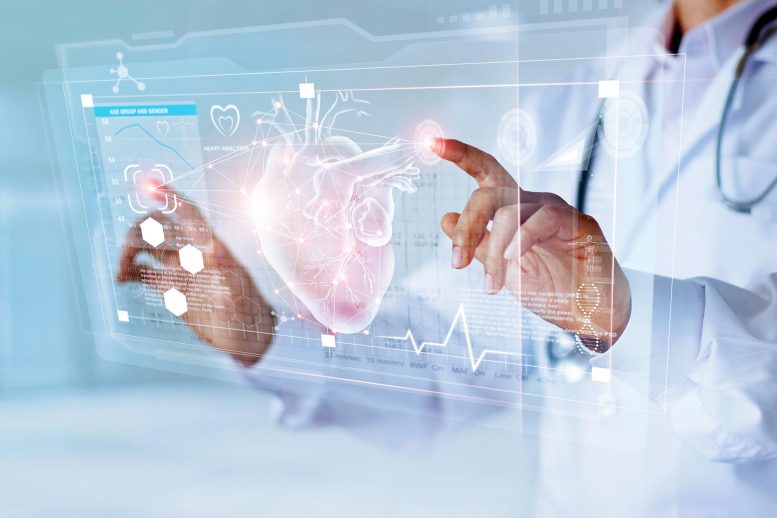
The study found that oxytocin had heart-healing properties.
Researchers have found that oxytocin, sometimes known as the “love hormone,” may one day help heal damaged hearts after a heart attack.
The neurohormone oxytocin is widely recognized for fostering social connections and producing pleasurable feelings, such as those associated with sex, exercise, or art. However, the hormone has a variety of other functions, such as the regulation of lactation and uterine contractions in females, and the regulation of ejaculation, sperm transport, and testosterone production in males.
Now, scientists from Michigan State University have demonstrated that oxytocin has yet another, previously unknown, function in zebrafish and human cell cultures: it stimulates stem cells from the heart’s outer layer (epicardium) to migrate into its middle layer (myocardium), where they develop into cardiomyocytes, the muscle cells that cause heart contractions. This finding could one day be used to promote the regeneration of the human heart after a heart attack. The researchers’ findings were recently published in the journal Frontiers in Cell and Developmental Biology.
“Here we show that oxytocin, a neuropeptide also known as the love hormone, is capable of activating heart repair mechanisms in injured hearts in zebrafish and human cell cultures, opening the door to potential new therapies for heart regeneration in humans,” said Dr. Aitor Aguirre, an assistant professor at the Department of Biomedical Engineering of Michigan State University, and the study’s senior author.
Stem-like cells can replenish cardiomyocytes
After a heart attack, cardiomyocytes often die off in large numbers. They cannot replenish themselves since they are highly specialized cells. Previous research has revealed, however, that a subset of cells in the epicardium may be reprogrammed to become stem-like cells known as Epicardium-derived Progenitor Cells (EpiPCs), which can regenerate not only cardiomyocytes but also other kinds of heart cells.
“Think of the EpiPCs as the stonemasons that repaired cathedrals in Europe in the Middle Ages,” explained Aguirre.
Unfortunately, under natural conditions, the production of EpiPCs is inefficient for human heart regeneration.
Zebrafish could teach us how to regenerate hearts more efficiently
Enter the zebrafish: famous for their extraordinary capacity for regenerating organs, including the brain, retina, internal organs, bone, and skin. They don’t suffer heart attacks, but its many predators are happy to take a bite out of any organ, including the heart – so zebrafish can regrow their heart when as much as a quarter of it has been lost. This is done partly by proliferation of cardiomyocytes, but also by EpiPCs. But how do the EpiPCs of zebrafish repair the heart so efficiently? And can we find a ‘magic bullet’ in zebrafish that could artificially boost the production of EpiPCs in humans?
Yes, and this ‘magic bullet’ appears to be oxytocin, argue the authors.
To reach this conclusion, the authors found that in zebrafish, within three days after cryoinjury – injury due to freezing – to the heart, the expression of the messenger RNA for oxytocin increases up to 20-fold in the brain. They further showed that this oxytocin then travels to the zebrafish epicardium and binds to the oxytocin receptor, triggering a molecular cascade that stimulates local cells to expand and develop into EpiPCs. These new EpiPCs then migrate to the zebrafish myocardium to develop into cardiomyocytes, blood vessels, and other important heart cells, to replace those which had been lost.
A similar effect on human tissue cultures
Crucially, the authors showed that oxytocin has a similar effect on human tissue in vitro. Oxytocin – but none of 14 other neurohormones tested here – stimulates cultures of human Induced Pluripotent Stem Cells (hIPSCs) to become EpiPCs, at up to twice the basal rate: a much stronger effect than other molecules previously shown to stimulate EpiPC production in mice. Conversely, genetic knock-down of the oxytocin receptor prevented the regenerative activation of human EpiPCs in culture. The authors also showed that the link between oxytocin and the stimulation of EpiPCs is the important ‘TGF-β signaling pathway’, known to regulate the growth, differentiation, and migration of cells.
Aguirre said: “These results show that it is likely that the stimulation by oxytocin of EpiPC production is evolutionary conserved in humans to a significant extent. Oxytocin is widely used in the clinic for other reasons, so repurposing for patients after heart damage is not a long stretch of the imagination. Even if heart regeneration is only partial, the benefits for patients could be enormous.”
Aguirre concluded: “Next, we need to look at oxytocin in humans after cardiac injury. Oxytocin itself is short-lived in circulation, so its effects in humans might be hindered by that. Drugs specifically designed with a longer half-life or more potency might be useful in this setting. Overall, pre-clinical trials in animals and clinical trials in humans are necessary to move forward.”
Reference: “Oxytocin promotes epicardial cell activation and heart regeneration after cardiac injury” by Aaron H. Wasserman, Amanda R. Huang, Yonatan R. Lewis-Israeli, McKenna D. Dooley, Allison L. Mitchell, Manigandan Venkatesan and Aitor Aguirre, 30 September 2022, Frontiers in Cell and Developmental Biology.
DOI: 10.3389/fcell.2022.985298
The study was funded by the National Institutes of Health, the American Heart Association, and the Spectrum-MSU Foundation.


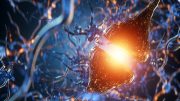

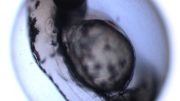
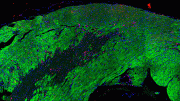
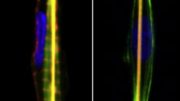


Science has devolved into fictional opinions, correlation and causation has been distorted. Please people, be smarter than this nonsense
🥱if that was real i would expect some heart failure
is it hopeful for people with 35% EF age above 70 years